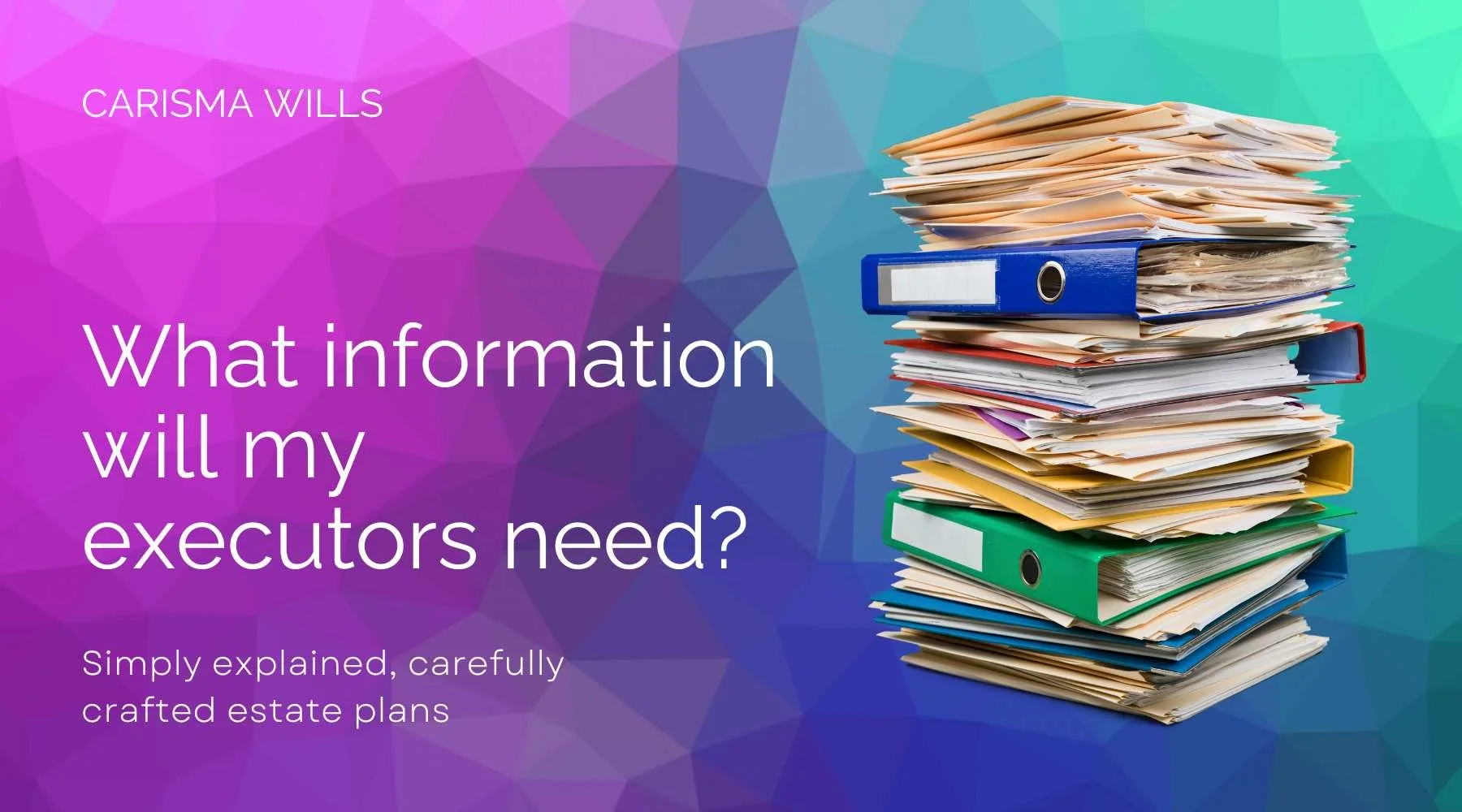What information will my executors need?
Peace of mind
It’s a fact that estate planning will give you peace of mind.
A Will can also spare your loved ones unnecessary stress when you pass away. As estate planners, we can help you start thinking about any financial planning you need to put in place now.
Read on for some practical steps you can take now:
Making a Will
If you haven’t already, an obvious first step is to make a Will.
Making a will is critical as it lets you decide who gets what when you die. If you die without one, you won’t have a say in who inherits your wealth. Instead, the intestacy rules will determine who inherits your wealth.
While nothing stops you from writing a Will yourself, getting advice is a good idea. That way, you can ensure it’s legally binding and that your wishes will be followed.
You can also make sure you maximise the benefits of any tax reliefs that your estate might be entitled to. It’s sensible to start thinking about broader estate planning that can maximise the value of assets you can leave behind. Ask family and friends for a referral to their trusted Will specialist.
The HMRC website has more information about making a Will.
Storing your Will
You must keep your will somewhere safe and where someone will be able to find it after you die. For hints and tips, read our blog, ‘Where should I store my Will?’
What else should you consider?
Involving your executors and family
In your Will, you’ll nominate people you trust to manage your estate - your executors. Often, your executors will also be beneficiaries (i.e., they will inherit your wealth), but this doesn’t have to be the case. You can appoint a paid professional to manage everything.
An executor’s responsibility is to carry out your wishes after your death. This is an important role, so you’ll also want your Will to clearly state who will administer and benefit from your estate if they die before you. Your estate planner can help your executors understand their legal responsibilities and ensure they are well-prepared when the time comes.
Introducing your financial adviser to your executors can be a good idea. This way, your executors can fully understand any planning or investments you have in place. It also ensures they won’t meet your adviser for the first time when bereaved.
We have a helpful guide to being an executor on our website: What does an executor do?
So, how can you prepare your loved ones today?
Helping your executors ahead of time
When you die, your executors will need to be able to find your personal and financial information.
A simple way to do this is to prepare and maintain a record for your executors - one that details what you own and where you have kept vital information.
You might want to include information such as:
Where you’ve kept your will.
The contact details of your solicitor, accountant and financial adviser.
Details about your investments.
Bank accounts in your name.
Information regarding your pension.
Details of any business assets or shares you own (as these may qualify for relief from inheritance tax).
Your funeral wishes.
Take action today
Although it’s not easy to talk about, a little preparation will help your loved ones. The most important thing to do now is to start a conversation.
Call us today to find out how we can help you.
*ONS study (2024)





